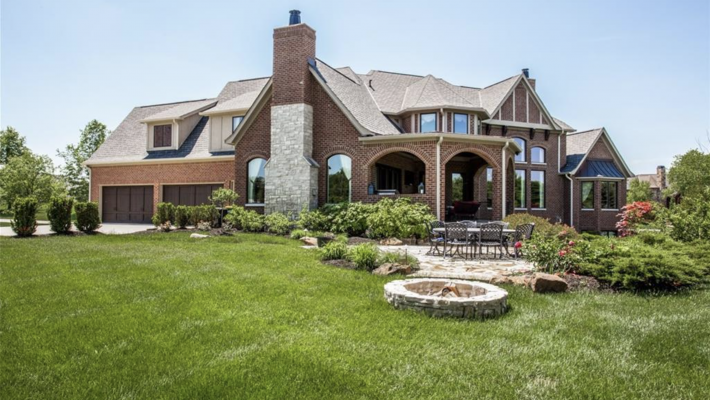To say that the real estate market has been doing some wild things lately is nothing short of a massive understatement. With fewer properties for sale and rising interest rates, everybody is looking for a bargain.
Could a bank-owned property or one that’s up for a “short sale” be the answer? Economical house shoppers know that homes that are listed as foreclosures or short sales can sell for thousands less than their actual value – bringing savings that could benefit a buyer in both the short-term and long-term futures.
While both types of properties have similarities, there are also some critical differences you should understand before you invest.
Short Sales, Pre-Foreclosures and Foreclosures: What’s the Difference?
All three of these properties share one feature in common: The current homeowner of the property has had a period of financial distress and can no longer afford their payments. That can happen due to any number of life events, from a lost job to a serious medical illness.
Here’s where they differ:
- Short sale properties are still in the possession of the current owner. They occur when a lender permits the owner to sell the home for less than what they owe on their mortgage in an attempt to avoid foreclosure. This most commonly happens when a property is “upside down” in its mortgage, meaning the owners owe more than the home is worth.
- A pre-foreclosure property is also still in the possession of the current owner, but about to go into foreclosure because the homeowner has missed several mortgage payments. Generally speaking, the homeowner can still avoid foreclosure either by catching up on the overdue mortgage payments, working out a mortgage modification or selling.
- A foreclosure property is one that has already been reclaimed by the bank due to nonpayment of a mortgage. These are often referred to as “bank-owned” properties because the prior owner is no longer part of the process.
What Are the Pros and Cons of Buying a Financially Distressed Property?
All three types of properties have one main benefit: They can offer great value for your money. However, the “cons” of each property differ sharply from there in the following ways:
- Homeowners in pre-foreclosure may suddenly find the cash they need to catch up on their payments, which means the house may suddenly be removed from the market before you can make a deal.
- Houses in preforeclosure may also transition to bank ownership while you’re in the process of buying. That means you might have to start the purchase process all over again or even abandon the pursuit.
- Short sales are often fairly straightforward transactions, but the mortgage holder has to approve the sale – and there are no guarantees. Usually, the minimum price for the sale is fixed, but the bank is always able to change its mind.
- Foreclosure homes are typically cash sales, and may even be sold at auction. That can be frustrating, especially if there’s a lot of competition. In addition, negotiations with the bank can be tedious and slow – which can be tough to handle when you’re waiting on decisions.
- Many foreclosure properties are sold “as-is,” and buyers aren’t even able to take a good look inside before they have to make an offer.
In addition, it’s critical to keep in mind that almost all of these properties may be physically distressed, as well. Short sale properties are probably most likely to be in good shape, but you can’t count on that. After all, a property owner who cannot afford their mortgage payments probably can’t afford routine maintenance and repairs, either.
Pre-foreclosure properties and foreclosures have additional hazards: As the new owner, you could be on the hook for any unpaid taxes or liens against the property. That’s a significant risk, especially if the property’s former owner was in dire financial straits before the home was abandoned or reclaimed by the bank. You definitely want to do your due diligence before you make an offer on a bank-owned property so that you know what to expect.
Does This Mean Buying a Short Sale or Bank-Owned Property Is a Bad Idea?
Not at all. It just means that you have to walk into the process anticipating potential problems and delays. Patience is definitely a virtue that’s rewarded when you’re going this route. Here are a few tips that can make the entire process a lot less intimidating:
- Get your finances in order before you start. You don’t want to fall in love with a foreclosed home and then find out that your lender won’t give you cash. You may need to investigate additional financing options.
- Similarly, a short sale may go fast (since the seller is often desperate to be rid of their obligation), so you want to have that mortgage pre-approval in hand and your finances in order when you make an offer.
- Work with an experienced real estate professional. A good agent can help you decide if this kind of purchase will meet your needs. They can also help you make sure that you know about any liens or other obvious problems with a property, and they can anticipate the kinds of concessions the bank may want.
Buying a financially distressed or bank-owned property can definitely be advantageous – but it isn’t without its challenges. Working with a real estate professional who understands the process, the paperwork and the potential for delays can help you get the outcome you deserve.
amanda.phillips@talktotucker.combill.ingram@talktotucker.combrad.layton@talktotucker.comeditors-pickerina.pribyshchuk@talktotucker.comfeaturedlloyd.zimmerman@talktotucker.commark.callahan@talktotucker.commary.layton@talktotucker.compriscila.hale@talktotucker.comterri.mcgraw@talktotucker.com




